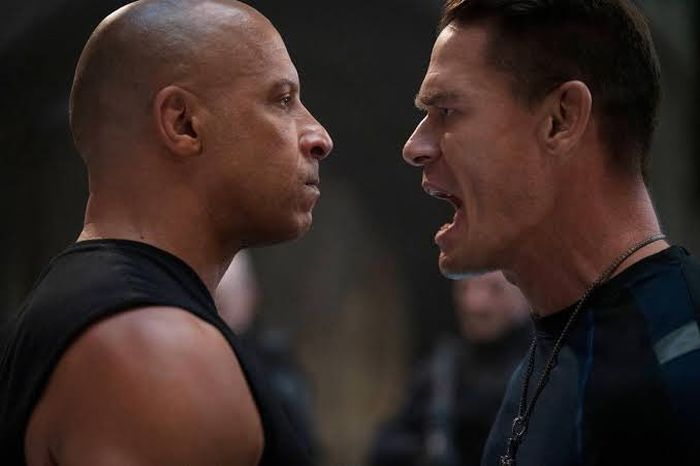Stacking up the Suicide Squads
Ryan Yeap takes a deep dive into the factors that make James Gunn’s recent remake of the 2016 film Suicide Squad so brightly outshine its predecessor
James Gunn’s (Super, Guardians of the Galaxy) eagerly anticipated The Suicide Squad (2021) has finally dropped – and thankfully, to rave reviews! Lauded for its delicate balance of irreverent humour and ultraviolence, it’s a far more polished and realised adaptation of Task Force X than 2016’s infamous dumpster fire of a debut. So what makes this part sequel part soft reboot work, and more importantly, what has improved since Warner Bros’ disastrous first attempt?
Proper building blocks
It was clear early on that The Suicide Squad (2021) was open season for a director like Gunn to flex his creative muscles. Whereas David Ayer’s Suicide Squad (2016) was marred by overzealous studio interventions and a questionable PG-13 rating, The Suicide Squad did not hesitate to let Gunn direct the movie that he had envisioned, with a hard R rating to boot. In true Game of Thrones style, various key characters unexpectedly kick the bucket, some humorously, others in blood-curdling, visceral fashion. No one is safe, but that’s a great thing: rather than paying mere lip-service to the title, Gunn finally provides a Suicide Squad experience that delivers – earnestly – on its sales pitch.
Meet your team
For squad members lucky enough to survive, Gunn fleshes them out with ample character and complexity, far from the thinly drawn caricatures of Suicide Squad (2016).
Familiar faces, new and improved, return to grace the screen. Margot Robbie unleashes her most nuanced portrayal of Harley Quinn yet – beneath her signature chaotic charm lies the trauma from an abusive ex’s clutches, and Robbie captures its poignancy to perfection. Quinn strikes a surprising friendship with Colonel Rick Flag (Joel Kinnaman), who’s much more likable this time around – a conflicted soldier with heart and humour, rather than a mindless military man. Conversely, Viola Davis’s Amanda Waller now emanates pure villainy: she’s colder, meaner, and far more vulgar – a menacing bureaucratic foil to the comparatively endearing members of Task Force X.
“The Suicide Squad (2021) forges a unit where everyone’s presence is felt, making this a much more character-driven movie”
More notable are the fresh faces that form the new primary roster. Bloodsport’s (Idris Elba) macho bitterness is shaped by childhood trauma, while jingoist Peacemaker (John Cena), for all his dogma, demonstrates some unease and remorse when adhering to his misguided principles. Nanaue/King Shark (Sylvester Stallone), despite his cannibalistic tendencies, is a lovable goofball who’s just lonely and misunderstood. But perhaps most praiseworthy is Ratcatcher 2 (with a breakout performance by Daniela Melchior). The youngest of the group, she’s as much a nonchalant millennial as she is a thoughtful friend – humanising both Bloodsport and even Nanaue with her displays of care and vulnerability.
Evidently, this rag-tag team of B-list antiheroes is expertly crafted, while the same can hardly be said for those in Suicide Squad (2016): Killer Croc was promptly forgotten, Katana lurked passively in the background, and El Diablo was reduced to an empty and unearned sacrifice. But here, with its slate of well-rounded members, The Suicide Squad (2021) forges a unit where everyone’s presence is felt, making this a much more character-driven movie – as it should be.
Story beats and themes
At first glance, the two movies appear to have identical plots: there’s a big bad that warrants a more covert black-ops unit to intervene, prompting Waller to set up a team to do so with the looming threat of a neck-implanted explosive. But the similarities end abruptly there – discarding the soulless belly-dancing Enchantress, Gunn ups the ante with the introduction of Starro the Conqueror, an extra-terrestrial Starfish-Cyclops kaiju that wreaks havoc on the fictional island of Corto Maltese.
However, what’s more impressive is how Gunn weaves in hard-hitting themes into the subtext of The Suicide Squad (2021): government deception, western imperialism and anti-American fervour all underscore the squad’s mission, presenting some fascinating moral grey areas for the characters to navigate. These same themes also shape Starro into a victim of human excess, turning him into a genuinely tragic adversary that elevates the character beyond textbook comic-book villainy. If anything, it’s the masters that the squad are forced to serve that are the true “bad guys”.
An action comedy
Not much needs to be said here – Gunn masterfully blends action and comedy as he did in Guardians of the Galaxy, deriving humour from even the darkest of circumstances. One particularly memorable sequence sees Bloodsport and Peacemaker trying to one-up each other as expert assassins: by slaughtering an entire encampment with increasingly flashy methods in their arsenal. It doesn’t get any more James Gunn than that.
Conclusion
If anything, it should be clear by now that The Suicide Squad (2021) is a massive improvement over its predecessor, offering a fresh take on a familiar premise. Character driven stories marry compelling themes, topped off with Gunn’s signature cocktail of comedy and action. What results is an absolute delight of a film, and certainly one of, if not the best, in the DCEU.
 News / Cambridge study finds students learn better with notes than AI13 December 2025
News / Cambridge study finds students learn better with notes than AI13 December 2025 News / Cambridge Vet School gets lifeline year to stay accredited28 November 2025
News / Cambridge Vet School gets lifeline year to stay accredited28 November 2025 Science / Did your ex trip on King’s Parade? The science behind the ‘ick’12 December 2025
Science / Did your ex trip on King’s Parade? The science behind the ‘ick’12 December 2025 News / Uni Scout and Guide Club affirms trans inclusion 12 December 2025
News / Uni Scout and Guide Club affirms trans inclusion 12 December 2025 Arts / Modern Modernist Centenary: T. S. Eliot13 December 2025
Arts / Modern Modernist Centenary: T. S. Eliot13 December 2025








